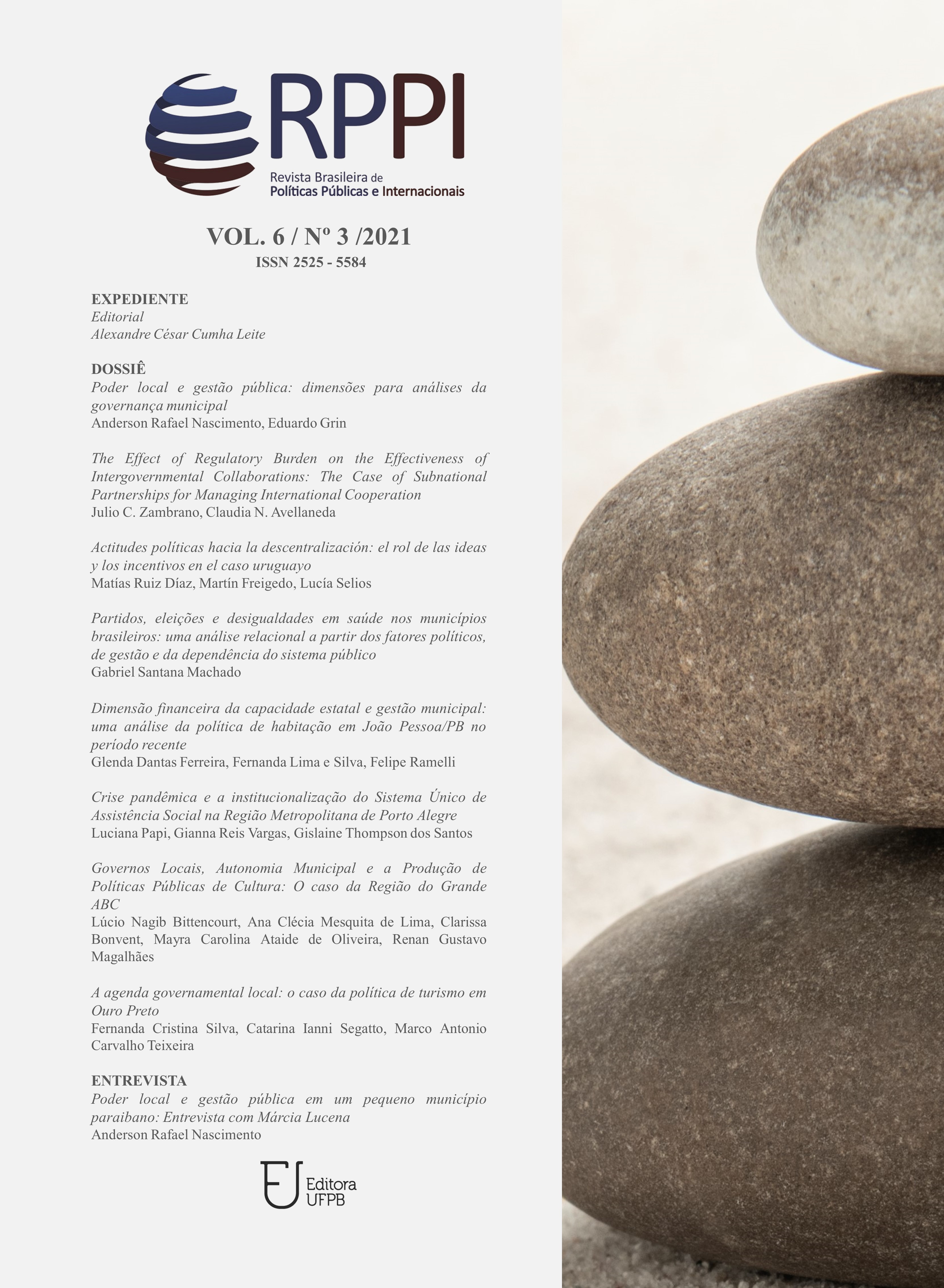Parties, elections and health inequalities in Brazilian municipalities
a relational analysis based on political and management factors and dependence on the public system
DOI:
https://doi.org/10.22478/ufpb.2525-5584.2021v6n3.60028Keywords:
inequalities, health, state capacity, left, electionsAbstract
This work aims to identify how political factors are related to health inequalities from the approach of state capacities, considering that these indicate a necessary condition for a potential reduction of health inequalities. For this, a synthetic indicator of state capacities in health was formulated for the 5,570 Brazilian municipalities from 2013 to 2015, and through descriptive analyzes and econometric regression models of panel data and logistic regression, we sought to answer the following questions: (I) is the dependence of voters on the public health system correlated with the levels of state capacity in health and, consequently, with the levels of inequality?; (II) do left parties reduce health inequalities more in relation to other parties?; and (III) are municipal governments that reduce health inequalities politically rewarded through re-election? The results indicate that (I) higher levels of dependence are correlated with higher levels of state capacity; (II) leftist parties no longer reduce health inequalities; (III) voters reward municipal governments for reducing health inequalities, although there is no unanimous standard in this regard.
Downloads
Additional Files
Published
Issue
Section
License
Copyright (c) 2021 Gabriel Santana Machado

This work is licensed under a Creative Commons Attribution 4.0 International License.
Autores que publicam nesta revista concordam com os seguintes termos:- Autores mantém os direitos autorais e concedem à revista o direito de primeira publicação, com o trabalho simultaneamente licenciado sob a Licença Creative Commons Attribution que permite o compartilhamento do trabalho com reconhecimento da autoria e publicação inicial nesta revista.
- Autores têm autorização para assumir contratos adicionais separadamente, para distribuição não-exclusiva da versão do trabalho publicada nesta revista (ex.: publicar em repositório institucional ou como capítulo de livro), com reconhecimento de autoria e publicação inicial nesta revista.
- Autores têm permissão e são estimulados a publicar e distribuir seu trabalho online (ex.: em repositórios institucionais ou na sua página pessoal) a qualquer ponto antes ou durante o processo editorial, já que isso pode gerar alterações produtivas, bem como aumentar o impacto e a citação do trabalho publicado (Veja O Efeito do Acesso Livre).




_.jpg)






.png)


.jpg)
_.png)
